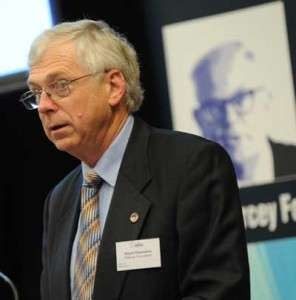Digital disruption 2015 – it’s real and it’s now!
Digital Disruption is something that all (or almost all) of us are aware. We see the impact of Airbnb, Uber, realestate.com, Seek and so on. Some disruptions are welcomed but many are not; and so, understandably, significant negative reactions appear.
In simplistic terms, where 'new' technologies meet 'old' regulations then societal challenges arise. It is not so much what we do about such challenges but more about how we plan for them as these changes are accelerating and inevitable.
One approach to thinking of this issue is to consider how the existing frameworks against which regulations, policies, laws and the like, came about. It may well be that the assumptions underpinning the regulatory environment have shifted radically. Semi-monopolistic approaches to industry regulation have not only been challenged, as in the case of the taxi sector, but bypassed and so regulators are scrambling.
Whilst the impact of new technologies on the taxi industry is immediately being felt, there are many more disruptors on their way in industries we haven't thought of yet. There is no easy and obvious solution that I am aware of but we collectively have the capability of addressing them but we need to move now.
One obvious digital disruption derivative relates to incremental job losses and job displacement. Planning for such consequences is important as many recent conferences have highlighted including the National Reform Summit sponsored by the Fairfax and Murdoch media groups held in late August 2015 in Sydney. However in looking at this challenge as more of an opportunity than a feared outcome, there will be many more new jobs created as a direct result of this disruption process.
The transformation of existing businesses and the creation of new enterprises arising from these new and emerging opportunities will no doubt well and truly offset the negative impacts.
Given the underpinning technology driving these disruptive and transformational forces is ICT, our industry sector has a responsibility to take a leadership role to inform Australia and Australians on these issues. Of particular urgency is to inform our politicians and policy-makers across the nation - how can we blame 'them' if the regulatory environment fails 'us'? The level of current public debate needs to increase and it needs to happen now. We have a particularly opportune time today, triggered by the recent change to the federal cabinet line-up.
For its part, the Pearcey Foundation has initiated a series of programs under the banner of Australia 3.0, to do just this. One such activity is planned for early Monday evening, 16th November 2015, where the Pearcey Foundation will be holding a public roundtable session at Data 61 (formerly NICTA) Sydney HQs in Eveleigh (adjoining Redfern Station). The topic to be discussed is "The lucky country disrupted: regulation, competition and collaboration in the digital economy".
Moderated by Sandy Plunkett, National Committee Member of the Pearcey Foundation, the 90 minute discussion will engage knowledgeable industry and policy experts including Nick Abrahams, author of "Digital Disruption in Australia" and lawyer, Jason Clare MP, Federal member for Blaxland and Shadow Minister for Communications, and David Rohrsheim, Uber GM Australia & New Zealand. Registration is mandatory but there will be no charge to attend thanks to support from NICTA and the Australian Computer Society.
This early evening roundtable event precedes the 2015 ACS REIMAGINATION SUMMIT set for the following day on 17th November. These day time activities will be followed by a gala dinner on the evening of 17 November where the 2015 Pearcey Medal and 2015 Benson Entrepreneur Awards will be presented along with the inaugural ACS Digital Disruptor Awards.
Wayne Fitzsimmons
Chairman, Pearcey Foundation
This article was originally published in The Rust Report on 28 September 2015

